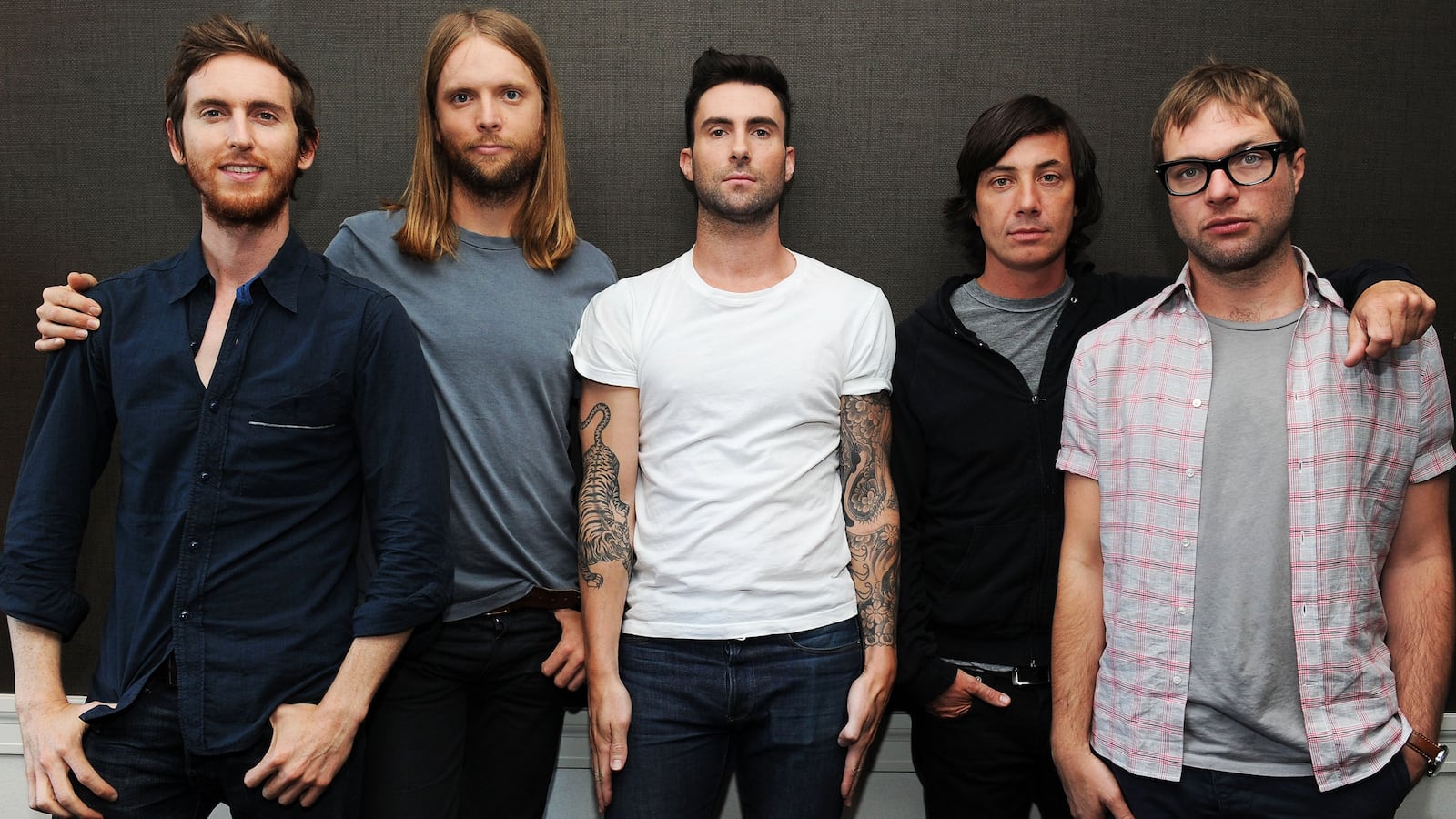Maroon 5 has been announced as the headlining act for the Super Bowl LIII halftime show in Atlanta on February 3, 2019. The announcement wasn’t exactly met with cheers on social media. That’s understandable—Maroon 5 has long been one of the most polarizing popular acts in music—but there was also an air of frustration that the Super Bowl wouldn’t be showcasing some of the rich hip-hop history and hit-making that have become synonymous with the ATL for the past 25 years.
The NFL still seems a bit skittish about presenting rappers on its biggest stage. A peripheral factor in the fallout from 2004’s Janet Jackson “Nipplegate” scandal was that some were offended by the performances of Nelly, Kid Rock and Diddy at that show. Crotch-grabs, strippers-as-cheerleaders, some kind of Kid Rock American flag poncho—it all fell into the mix that was the pearl-clutching of network censors and pontificating politicians. Jackson felt the brunt of that backlash, but it also lingered over the Super Bowl for years. That’s why we mostly got a parade of granddad-rock halftime shows (The Who, Bruce Springsteen, Tom Petty, The Rolling Stones, Paul McCartney) for almost a decade. Some of these artists were just as brazen and “dangerous” in their younger days; but by the early 2000s, the classic rock guys had become the “safe” alternative to these wild and crazy rappers.
In the 2010s, things began to loosen up a bit. The Black Eyed Peas, Beyoncé and Bruno Mars brought the proceedings back into more contemporary stylings, and even Madonna’s 2012 performance included Nicki Minaj, M.I.A. and CeeLo Green. There was some controversy over M.I.A. flipping a middle finger on camera, but it was mainly a ripple. So why does it feel like there’s still an aversion to rappers as headliners at the Super Bowl?
The Maroon 5 choice feels like a “safe” one—much like Justin Timberlake did this year. These artists have big hits, like Maroon 5’s Cardi B-assisted “Girls Like You,” but it doesn’t feel as though they’re the defining pop stars of the moment. They also don’t have a “legends in the game” reputation. They just seem like white guys with big hits and just enough blandness to not terrify the more conservative corners of NFL viewership.
Maroon 5 is “rock” in name only, but one can’t help but think that’s enough. Coldplay was the headliner in 2016 but Chris Martin & Co. wound up overshadowed by Bruno Mars and especially Beyoncé, who delivered that unforgettable and bold “Formation” performance. It seemed to be a clear indicator that rock bands aren’t exactly the top draw for this kind of thing anymore, yet the powers that be still seem to be squeamish about treading in hip-hop waters.
That’s unfortunate, because with the Super Bowl back in Atlanta and the city’s shiny new Mercedes-Benz Stadium, it would be the perfect time to salute the A’s tremendous musical legacy while also proving the NFL isn’t as out-of-touch and stubborn as it has felt of late. With all of the criticism the league has received for its nebulous stance on the ongoing player protests against police killing Black citizens, the NFL could use a good bit of PR that would suggest they’re not just a league devoted to sustaining the attentions of red state Republicans who would rather hear Big & Rich than Beyoncé. It would be a lie—but everybody likes a little escapism, right?
And Atlanta is overflowing with artists who could take the stage and deliver a jaw-dropping medley of hits. Usher and Ludacris are now elders in the pop music game and have enough really big songs to get the crowd and folks at home fired up—Luda songs blare out of speakers at almost every major sporting event in the country. Migos is the hottest rap group in the game, and Outkast are bona fide legends. Jermaine Dupri would even be an inspired choice—maybe have Usher as the “name,” but the Dupri connection could lead to surprise guests like Mariah Carey and even Janet Jackson. What better way to exorcise the demons of 2004 than to have Ms. Janet unexpectedly hit the stage?
Hip-hop is still viewed with some level of stigma—in spite of all the chatter about how far the genre has come and what it now represents as a fixture in pop culture. We’ve seen rock legends take the Super Bowl stage in their AARP years and run through countless songs we’ve all heard a million times. Isn’t it past time we start seeing that kind of legendary reverence for elder rappers? Has anyone ever considered a Jay-Z halftime show at the Super Bowl? Or what about LL Cool J? He has 20+ years of hits, is supremely famous, puts on a good show and there could be an endless amount of guests, from Boyz II Men to J. Lo (we don’t really need Brad Paisley).
This is no slight to Maroon 5, really. I’m sure Adam and the guys will put on a good show. But it does feel like such a missed opportunity for the NFL and the city of Atlanta. Hip-hop is your dad’s music now, and there are so many artists who have the legacies and the hits to become the kind of mainstays we see play things like the Super Bowl halftime show. Even if it’s not Atlanta-specific artists, hip-hop assuming that kind of cultural mantle seems to be scary to some folks. But we are already here. And it’s becoming increasingly obvious that those brands that don’t seem to recognize that will be stuck pandering to an aging base and its values. That may play well for you now, but pretty soon you’re just going to look antiquated. Maroon 5 is expected to bring hip-hop stars like Travis Scott and Cardi B to Atlanta to rock Mercedes-Benz Stadium. That’s nice—but rappers should be headlining this thing. It’s not even a “calculated risk,” NFL.
It just makes sense.





